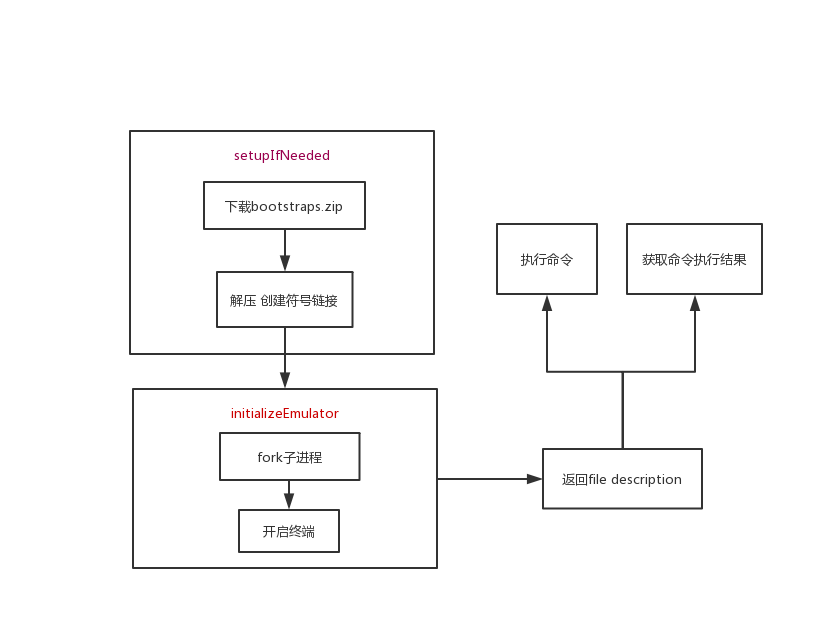1
2
3
4
5
6
7
8
9
10
11
12
13
14
15
16
17
18
19
20
21
22
23
24
25
26
27
28
29
30
31
32
33
34
35
36
37
38
39
40
41
42
43
44
45
46
47
48
49
50
51
52
53
54
55
56
57
58
59
60
61
62
63
64
65
66
67
68
69
70
71
72
73
74
75
76
77
78
79
80
81
82
83
84
85
86
87
88
89
| static int create_subprocess(JNIEnv* env,
char const* cmd,
char const* cwd,
char* const argv[],
char** envp,
int* pProcessId,
jint rows,
jint columns)
{
int ptm = open("/dev/ptmx", O_RDWR | O_CLOEXEC);
if (ptm < 0) return throw_runtime_exception(env, "Cannot open /dev/ptmx");
#ifdef LACKS_PTSNAME_R
char* devname;
#else
char devname[64];
#endif
if (grantpt(ptm) || unlockpt(ptm) ||
#ifdef LACKS_PTSNAME_R
(devname = ptsname(ptm)) == NULL
#else
ptsname_r(ptm, devname, sizeof(devname))
#endif
) {
return throw_runtime_exception(env, "Cannot grantpt()/unlockpt()/ptsname_r() on /dev/ptmx");
}
struct termios tios;
tcgetattr(ptm, &tios);
tios.c_iflag |= IUTF8;
tios.c_iflag &= ~(IXON | IXOFF);
tcsetattr(ptm, TCSANOW, &tios);
struct winsize sz = { .ws_row = (unsigned short) rows, .ws_col = (unsigned short) columns };
ioctl(ptm, TIOCSWINSZ, &sz);
pid_t pid = fork();
if (pid < 0) {
return throw_runtime_exception(env, "Fork failed");
} else if (pid > 0) {
*pProcessId = (int) pid;
return ptm;
} else {
sigset_t signals_to_unblock;
sigfillset(&signals_to_unblock);
sigprocmask(SIG_UNBLOCK, &signals_to_unblock, 0);
close(ptm);
setsid();
int pts = open(devname, O_RDWR);
if (pts < 0) exit(-1);
dup2(pts, 0);
dup2(pts, 1);
dup2(pts, 2);
DIR* self_dir = opendir("/proc/self/fd");
if (self_dir != NULL) {
int self_dir_fd = dirfd(self_dir);
struct dirent* entry;
while ((entry = readdir(self_dir)) != NULL) {
int fd = atoi(entry->d_name);
if(fd > 2 && fd != self_dir_fd) close(fd);
}
closedir(self_dir);
}
clearenv();
if (envp) for (; *envp; ++envp) putenv(*envp);
if (chdir(cwd) != 0) {
char* error_message;
if (asprintf(&error_message, "chdir(\"%s\")", cwd) == -1) error_message = "chdir()";
perror(error_message);
fflush(stderr);
}
execvp(cmd, argv);
char* error_message;
if (asprintf(&error_message, "exec(\"%s\")", cmd) == -1) error_message = "exec()";
perror(error_message);
_exit(1);
}
}
|
